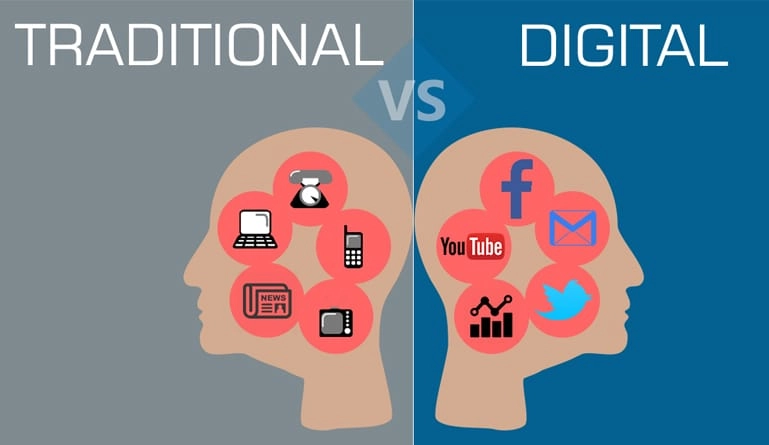Traditional marketing is losing its place in today’s digitally developing world.
Digital marketing is more effective than traditional marketing and makes more sense in our digital world. Not only is keeping up with digital marketing practices essential for companies to master for their sake but also their customer’s sake as well.
With the digital transformation happening in the business world, marketing managers need to know which marketing practices don’t make sense to focus on anymore. Some marketing practices marketers use to do, do not make sense in our progressing digital world and should not be focused on anymore.
Old School Marketing Practices that Don’t Work in the Digital World
Marketing campaigns cannot be managed by just the number of clicks or impressions anymore. To ensure a campaign is successful, marketers must manage campaigns based on conversions and ROI. These are the only surefire ways to know how successful a campaign is. Marketing managers can not rent email lists in this digital world. Very few list owners properly groom their lists. Renting these lists is a great way to increase spam complaints and unsubscribes, while at the same time lowering your reputation as a sender. In our digital world, it is much easier to create and send out targeted emails. Sending unsegmented and untargeted emails is a great way to withdraw recipients. It is easier than ever to analyze data to create perfectly targeted emails that are sure to increase recipient satisfaction.
Traditional Marketing vs Digital Marketing
There are many benefits and differences between digital marketing and traditional marketing. Traditional marketing allows companies to easily reach their local target audience, the materials can be kept and it’s easy to understand. While traditional marketing offers many benefits, there are also downsides to this old way of marketing. The first downside is that there is a little amount of interaction between the medium used in the marketing campaign and the customers. These mediums more serve as a means of providing information to customers than connecting with them. Another downside is that print and radio advertisements can be very expensive and the results of the marketing are not easily measured. Digital marketing also has many benefits. Digital marketing allows companies to not only reach a local audience but an international one as well. Digital marketing allows audiences to choose the way they receive the marketing content and companies can interact with the audience. Digital marketing offers many more benefits and no real downsides which is why it offers the best marketing options.
Digital Marketing Best Practices
Digital marketing trends are changing the way marketing managers are communicating with their audiences. One of the best digital marketing practices in 2018 is SEO. SEO is worth the effort because it is the number one driver of traffic to websites. SEO is the best way for a company to generate leads and maximize ROI. Another digital marketing strategy that greatly benefits companies is getting personal with customers. Companies can easily engage with their customers due to the information they gather based on their online activities. Companies that engage with their customers on a deep, personal level increase awareness and keep those customers from finding their competitors. One of the best digital practices a marketing manager can practice is to build content that serves a purpose. Relevant content creation is the most effective SEO tactic that will not only help drive traffic but also retain engaged customers.
Old marketing practices are becoming more and more out of date as the digital transformation continues. Digital marketing trends are leading the marketing world allowing managers to create campaigns that interact and engage with customers more effectively. Traditional marketing practices are not only more expensive for businesses; they are not as effective and do not have the reach digital marketing has. Digital marketing is changing the way companies reach out to customers and it is essential for marketing managers to stay up to date with new and emerging marketing trends.





